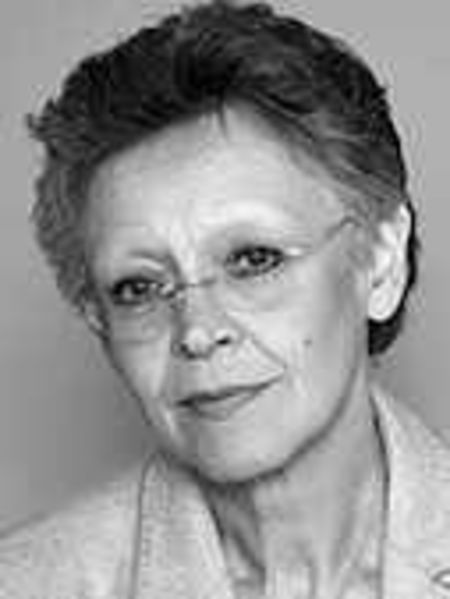As World AIDS Day is celebrated on 1 December 2014, we profile Françoise Barré-Sinoussi, president of the International AIDS Society since 2012. Barré-Sinoussi is a French virologist, and a past winner of the International AIDS Society Prize. Her research has focused primarily on retroviruses. In 1983, she discovered the human immunodeficiency virus (HIV), an accomplishment that led to her being awarded the 2008 Nobel Prize in Physiology or Medicine, along with co-discoverer Luc Montagnier. They shared the 2008 prize with Harald zur Hausen, whose discovery of the virus responsible for cervical cancer led to the HPV vaccine.
Barré-Sinoussi received her PhD in 1975. She began her career in HIV research at the Pasteur Institute in Paris in 1983, leaving only for a year-long internship at the National Institutes of Health in the United States. In 1988, she established her own laboratory at the Pasteur Institute to address the pressing need for diagnostic tests for HIV, with the hope of controlling its transmission in at-risk populations. She was appointed the head of the Biology of Retroviruses Unit in 1992.
In the decades following her discovery of HIV, Barré-Sinoussi has been a prolific researcher of the adaptive immune response to viral infections and the ways in which the host’s natural immune defences respond to HIV/AIDS. She has investigated HIV transmission from mother-to-child, as well as the population of individuals whose cases of HIV are somehow suppressed or controlled without antiretroviral therapy.
International Involvement
In the developing world, Barré-Sinoussi has been responsible for establishing collaborations with local scientists and international research institutes. A key focus has been on the prevention, care and treatment of HIV/AIDS by matching basic and clinical research activities. Her first visit to Africa was in 1985, when the World Health Organisation (WHO) hosted a workshop in Bangui (Central African Republic). The experience instilled in her a desire to work closely with limited-resource nations where conditions were most dire. She visited Vietnam in 1988, and these excursions began long-term cultural exchanges between young scientists in Africa and Asia and researchers in Paris.
Barré-Sinoussi is a frequent contributor to scientific journals, with more than 240 publications, and a popular participant at international conferences. She is a consultant to UNAIDS-HIV, an active participant in the National Agency for AIDS Research (France) and a member of multiple committees and societies at the Pasteur Institute in Paris. France’s National Order of the Legion of Honour named her an officer in 2006 and she was promoted to Grand Officer in 2013.
In addition to the Nobel and International AIDS Society prizes, Barré-Sinoussi has been recognised with the Prize of the French Academy of Sciences, the Körber European Science Prize, the Sovac Prize and the King Faisal International Prize. She has received honorary degrees from Tulane University (2009) and the University of New South Wales (2014).
Sources: Nobelprize.org, Wikipedia
Image Credit: Nobelprize.org




















